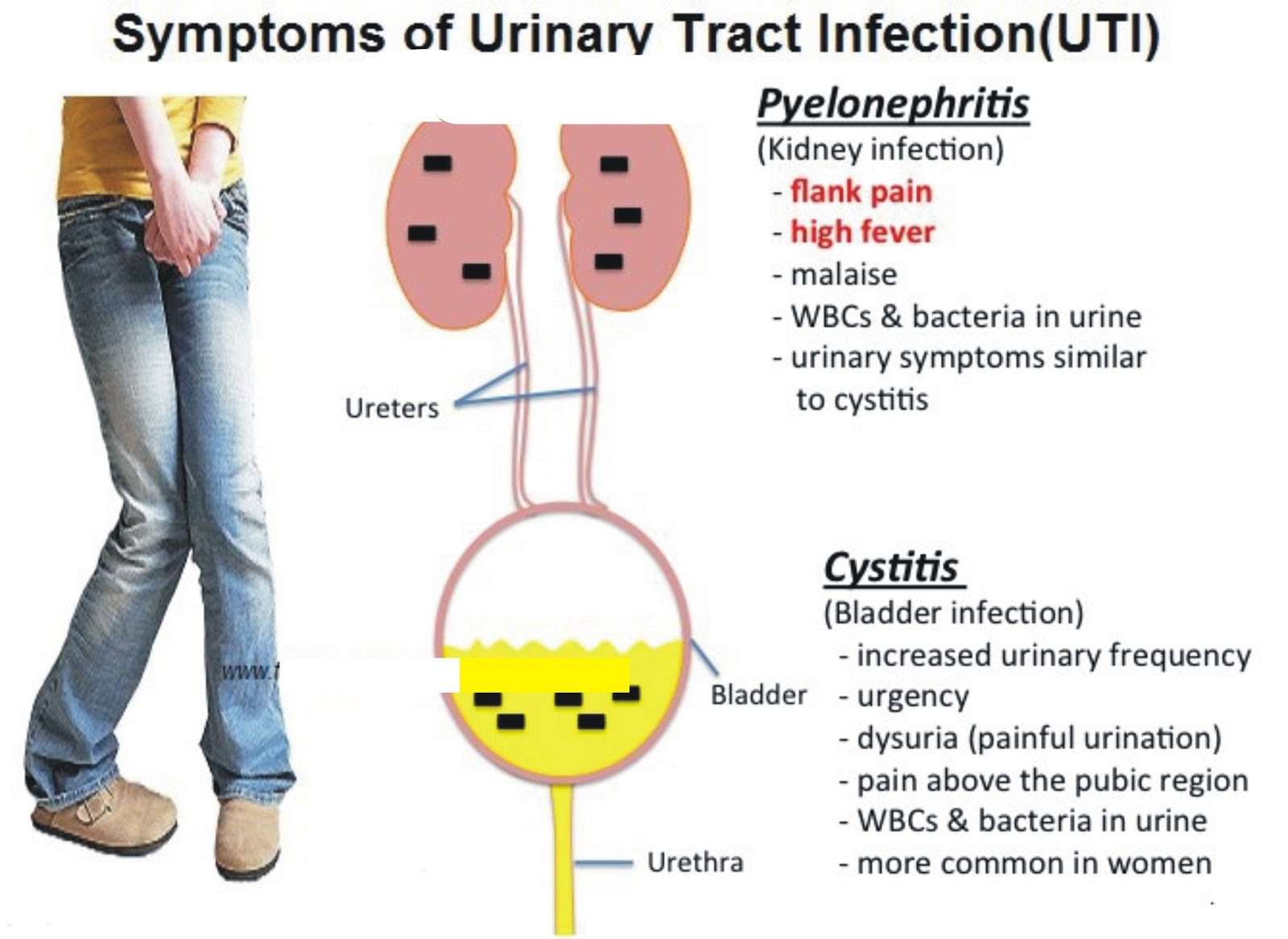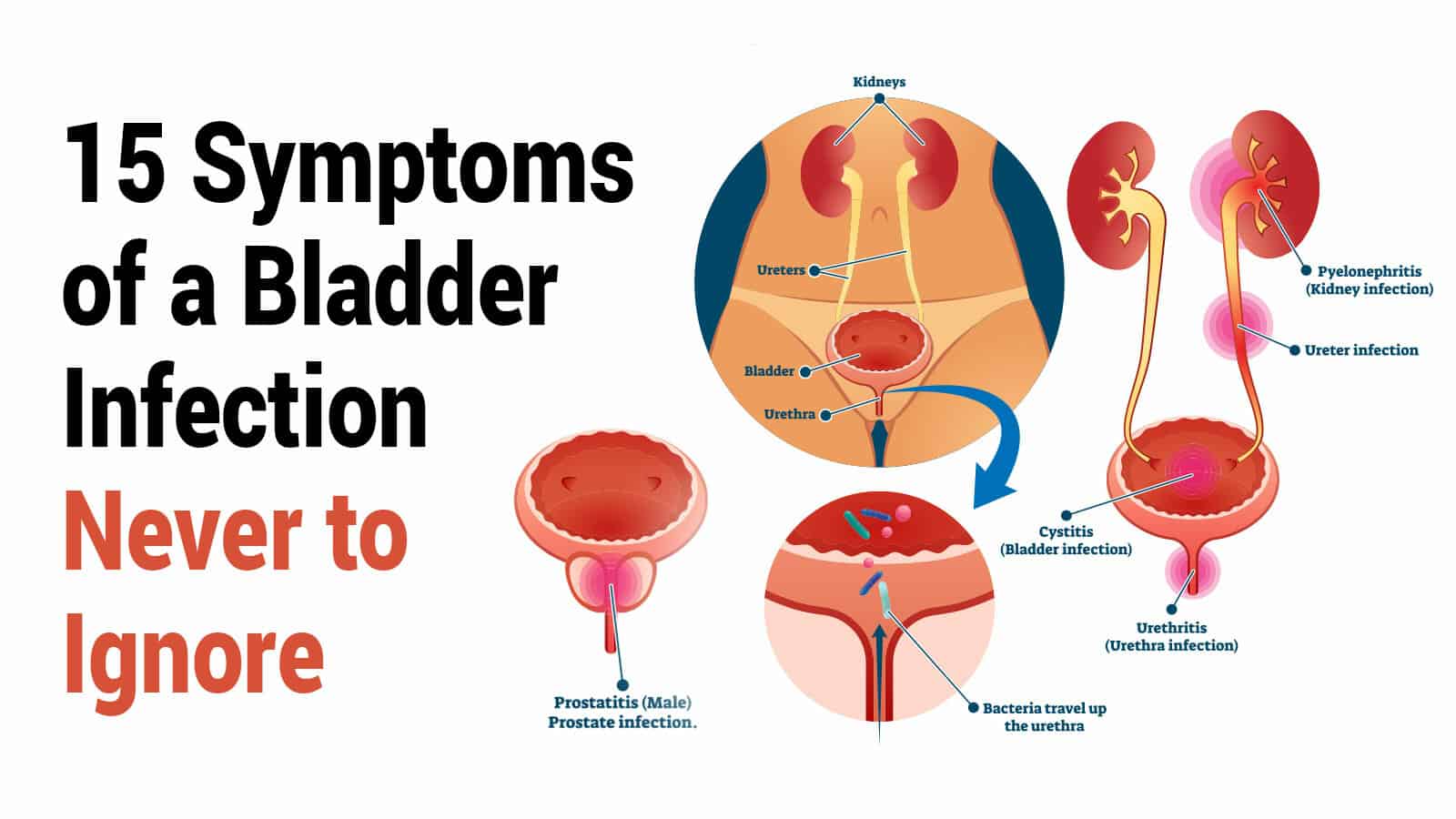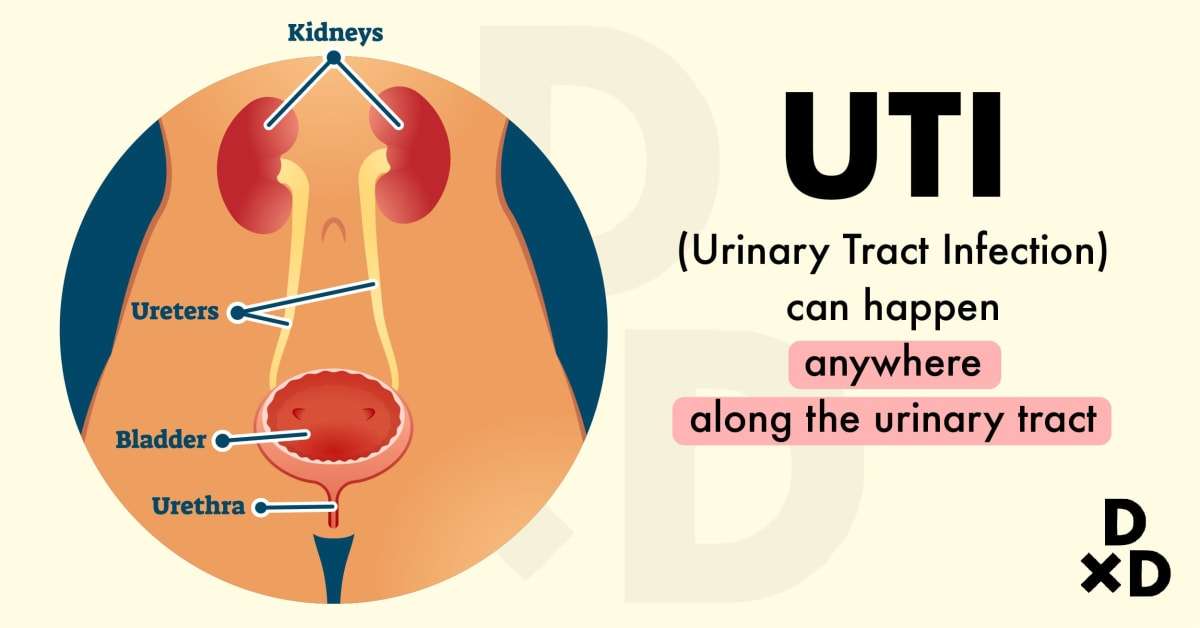Why Do Women Get Urinary Tract Infections More Often Than Men
Women tend to get urinary tract infections more often than men because bacteria can reach the bladder more easily in women. The urethra is shorter in women than in men, so bacteria have a shorter distance to travel.
The urethra is located near the rectum in women. Bacteria from the rectum can easily travel up the urethra and cause infections. Bacteria from the rectum is more likely to get into the urethra if you wipe from back to front after a bowel movement. Be sure to teach children how to wipe correctly.
Having sex may also cause urinary tract infections in women because bacteria can be pushed into the urethra. Using a diaphragm can lead to infections because diaphragms push against the urethra and make it harder to completely empty your bladder. The urine that stays in the bladder is more likely to grow bacteria and cause infections.
Frequent urinary tract infections may be caused by changes in the bacteria in the vagina. Antibacterial vaginal douches, spermicides, and certain oral antibiotics may cause changes in vaginal bacteria. Avoid using these items, if possible. Menopause can also cause changes in vaginal bacteria that increase your risk for urinary tract infection. Taking estrogen usually corrects this problem but may not be for everyone.
What Are The Risk Factors For Getting Bladder Infections And Other Uti Infections
A person is more likely to get a bladder infection if they dont urinate frequently enough. If they hold their urine in, the bacteria can collect in the bladder and lead to infection. Try to go to the bathroom at least every two to three hours to keep this from happening.
Not drinking enough water is another risk factor for bladder infections because your body doesnt move as much urine through the bladder as quickly.
Risk factors for urethritis include having a sexually transmitted infection or from trauma to the urethra, such as due to the insertion of a urinary catheter.
In addition to these specific risk factors for bladder infections, there are general risk factors for all UTI types. These include:
risk factors for uti
- being pregnant
- having diabetes, as a person experiences changes to their immune system that make them more prone to UTIs
- having an enlarged prostate
- having low levels of estrogen, such as when a woman is post-menopausal
- having a history of kidney stones, which can block the flow of urine through the urinary tract
Women are also more likely than men to get UTIs because their urethra is shorter. The bacteria have less distance to go to reach the bladder and can cause infections.
What’s The Difference Between A Bladder Infection And Uti
As the name suggest, a urinary tract infection affects your urinary tract, which is made up of two kidneys, two ureters, a bladder, and a urethra, according to the US National Library of Medicine . A UTI happens when bacteria get into the urethra and begin multiplying. Most commonly, it’s a strain of bacteria called Escherichia coli , which normally lives in the intestines and anus .
Once the bacteria makes its way into your urethra, anywhere in your urinary tracts becomes fair game for an infection. If the bacteria infect your urethra, for example, it’s called urethritis if it makes its way to your ureters or kidneys, it’s called pyelonephiritis.
The most common type of a UTI, however, is a bladder infection , according to the Centers for Disease Control and Prevention . In fact, “a bladder infection is what most people think of when they hear about a UTIthat’s the easiest way to interpret a bladder infection,”Michael Herman, MD, urologist and director of urologic oncology at Mount Sinai South Nassau, tells Health.
RELATED: 5 UTI Symptoms You Shouldn’t Ignore, According to Doctors
Recommended Reading: What Is The Best Medicine For Bladder Control
Do You Have Cystitis Or A Uti
You may have UTI in your bladder, which leads to bacterial cystitis. However, UTI doesnt have to occur in your bladder in which case you would not have bacterial cystitis.
You may have interstitial cystitis if youre experiencing cystitis symptoms without any bacteria in your urine. Interstitial cystitis is sometimes called non-infectious cystitis because it is bladder inflammation that is not caused by a bacterial infection.
What is the difference between cystitis and UTI? There are 3 main differences between cystitis and UTI:
Can a UTI cause cystitis? UTI can directly cause bacterial cystitis, or indirectly cause interstitial cystitis. If UTI is left untreated, it can lead to chronic bladder inflammation, which is the underlying cause of interstitial cystitis.
UTI and interstitial cystitis are interconnected, yet they are different. Below, we list what differentiates the two.
What Is The Urinary Tract

The urinary tract makes and stores urine, one of the body’s liquid waste products. The urinary tract includes the following parts:
- Kidneys: These small organs are located on back of your body, just above the hips. They are the filters of your body removing waste and water from your blood. This waste becomes urine.
- Ureters: The ureters are thin tubes that carry urine from the kidneys to your bladder.
- Bladder: A sac-like container, the bladder stores your urine before it leaves the body.
- Urethra: This tube carries the urine from your bladder to the outside of the body.
Recommended Reading: Over The Counter For Bladder Spasms
How Is Urinary Tract Infection Diagnosed
In order to ensure a clean urine sample, a physician will likely have you clean your genital area with a special wipe beforehand, and ask that you do a midstream catch of the urine.
If a UTI is diagnosed, youll be treated with antibiotics. Its important to note that false negative results do occur and that almost all women who experience typical UTI symptoms and a negative urine culture actually do have a UTI. 30209-4/fulltext” rel=”nofollow”> 11)
If youve had a prior UTI, your healthcare provider will look at prior cultures to see which bacteria were found, if any, and which antibiotics were used this often guides therapy in recurrent UTIs.
Whats The Difference Between A Urinary Tract Infection And Bladder Infection
A urinary tract infection is a more general type of infection. There are many parts of your urinary tract. A UTI is a term for an infection that takes place throughout the urinary tract. A bladder infection, also called cystitis, is a specific infection. In this infection, bacteria makes its way into the bladder and causes inflammation.
Not all urinary tract infections become bladder infections. Preventing the spread of the infection is one of the most important reasons to treat a UTI quickly when you have symptoms. The infection can spread not only to the bladder, but also into your kidneys, which is a more complicated type of infection than a UTI.
Also Check: Does Smoking Affect Your Bladder
Can A Uti Lead To Interstitial Cystitis
The cause of IC still has not been determined. Theories include injury to the bladder, problems with communication between the bladder and the brain, and even autoimmunity. There are certain things that can trigger flares of IC, such as foods, drinks, and certain activities. UTIs are also known to trigger flares of IC, but its not clear if they are a cause.
What Are The Signs & Symptoms Of Utis
UTIs can cause such signs as:
- pain, burning, or a stinging sensation when peeing
- an increased urge or more frequent need to pee
- fever
- waking up at night a lot to go to the bathroom
- belly pain in the area of the bladder
- foul-smelling pee that may look cloudy or contain blood
If you have any symptoms of a UTI, you’ll need to go to a doctor right away. The sooner you begin treatment, the less uncomfortable you’ll be. Call your doctor’s office or clinic. If you can’t reach your doctor, you can visit an urgent care center or hospital emergency room. The most important thing is to take action as soon as possible.
Don’t Miss: What Kind Of Doctor Does Bladder Prolapse Surgery
How Men Can Prevent Utis
There are things men can do to reduce the chance of getting a UTI. These include:
- Dont hold urine for too long. Bacteria grow in it.
- Drink water to flush your kidneys.
- Practice good hygiene.
- Urinate after sex to flush bacteria from the urethra.
- If you have diabetes, control your blood sugar. High blood sugar can spill into the urine and bacteria thrive on it.
Do I Need To See A Doctor
Yes. Painful urination can be a symptom of a more serious problem. You should tell your doctor about your symptoms and how long youve had them. Tell your doctor about any medical conditions you have, such as diabetes mellitus or AIDS, because these could affect your bodys response to infection. Tell your doctor about any known abnormality in your urinary tract, and if you are or might be pregnant. Tell your doctor if youve had any procedures or surgeries on your urinary tract. He or she also need to know if you were recently hospitalized or stayed in a nursing home.
If your doctor thinks your pain may be from vaginal inflammation, he or she may wipe the lining of your vagina with a swab to collect mucus. The mucus will be looked at under a microscope to see if it has yeast or other organisms. If your pain is from an infection in your urethra , your doctor may swab it to test for bacteria. If an infection cant be found, your doctor may suggest other tests.
Also Check: Over The Counter Bladder Numbing Medicine
Related Conditions And Causes Of Uti
There are a number of health conditions that share some symptoms with urinary tract infections, including:
The following conditions may make you more susceptible to developing a UTI and increase the severity of symptoms:
Type 2 diabetes
And having a UTI can increase a man’s risk for benign prostatic hyperplasia .
Eating Diet & Nutrition

Experts dont think eating, diet, and nutrition play a role in preventing or treating bladder infections. If you have any type of UTI, talk with a health care professional about how much to drink each day to help prevent or relieve your infection.
The National Institute of Diabetes and Digestive and Kidney Diseases and other components of the National Institutes of Health conduct and support research into many diseases and conditions.
Don’t Miss: Bladder Prolapse Surgery Success Rate
Types Of Urinary Tract Conditions
A urinary tract infection refers to an infection in any area of the urinary tract. Conditions that can occur in the urinary tract or with the potential to lead to complicated infections include:
- Urethritis: An inflammation of the urethra, usually caused by an infection for example, a sexually transmitted disease such as chlamydia
- Cystitis: An infection in the bladder that has often moved up from the urethra, also one of the most common UTIs
- Nephritis: Any type of kidney inflammation
- Pyelonephritis: An infection in one or both kidneys
How Do You Get Urinary Tract Infections
The design of the human body makes it so it isnt hard to get a bacterial UTI, because the infection comes from outside, through the urethra. Bacteria in the genital area can enter the urethra and the urinary tract, either because wiping after going to the bathroom, sexual activity, or unsanitary conditions. Once the bacteria have entered the urethra, the body tries fight them off, but sometimes the bacteria multiply and cause an infection.
In the case of a fungal infection, usually the fungus gets to the urinary tract through the blood stream. Those who develop this type of infection are usually ill with a disease that has compromised their immune system, such as AIDS.
In general, women get more UTIs than do men and this increases with age. Statistics show that many women get more than one. Almost 20% of women who have had one UTI will go on to have a second. Of this 20%, 30% of those will have a third, and in turn, 80% of these women will have more.
Don’t Miss: Is Green Tea Good For Bladder Infection
What Is Bladder Infection
Bladder infection is a type of urinary tract infection that affects the bladder of the concerned person. People are more prone to have this type of infection, especially females. Burning of urine, leaking urine, stomach pain infections are common symptoms. Elderly women should get themselves checked regularly.
A bladder infection that is not so serious may disappear on its own. However, if the symptoms still persist, it is advisable to visit a doctor as early as possible. A number of people try to use home remedies. Even though they prove to be beneficial for some, they may not work for everyone.
The medical term that is used for bladder infections is Cystitis. People who are affected by this suffer from inflammation of the bladder. Moreover, if the infection spreads to the kidneys, the problem will worsen. When doctors identify a bladder infection, they usually suggest antibiotics for the patient.
Apart from bacterial infection, such inflammation may be caused because of reactions to certain drugs, using feminine hygiene spray, or even radiation therapy. Sometimes, cystitis may occur in a patient as a symptom of some other illness. Treatment for this type of disease may also depend on the reason due to which It occurred in the first place.
Can Utis Be Prevented
A few things can help prevent UTIs. After peeing, girls should wipe from front to back with toilet paper. After BMs, wipe from front to back to avoid spreading bacteria from the rectal area to the urethra.
Also, go to the bathroom when needed and don’t hold the pee in. Pee that stays in the bladder gives bacteria a good place to grow.
Keep the genital area clean and dry. Girls should change their tampons and pads regularly during their periods. Bubble baths can irritate the vaginal area, so girls should take showers or plain baths. Avoid long exposure to moisture in the genital area by not wearing nylon underwear or wet swimsuits. Wearing underwear with cotton crotches is also helpful. Skip using feminine hygiene sprays or douches, as these can irritate the urethra.
If you are sexually active, go to the bathroom both before and within 15 minutes after sex. After sex, gently wash the genital area to remove any bacteria. Avoid sexual positions that irritate or hurt the urethra or bladder. Couples who use lubrication during sex should use a water-soluble lubricant such as K-Y Jelly.
Finally, drinking lots of water each day keeps the bladder active and bacteria-free.
UTIs are uncomfortable and often painful, but they’re common and easily treated. The sooner you contact your doctor, the sooner you’ll be able to get rid of the problem.
You May Like: How To Get Rid Of A Bladder Infection Without Antibiotics
Can I Prevent A Urinary Tract Infection
You can usually prevent a urinary tract infection with lifestyle changes. These tips can include:
In some post-menopausal women, a healthcare provider may suggest an estrogen-containing vaginal cream. This may reduce the risk of developing a UTI by changing the pH of the vagina. Talk to your healthcare provider if you have recurrent UTIs and have already gone through menopause.
Over-the-counter supplements are also available for UTIs. These are sometimes recommended for people who have frequent UTIs as another way to prevent them. Talk to your healthcare provider before starting any supplements and ask if these could be a good choice for you.
Risk Factors That Make You More Likely To Get A Uti
UTIs are much more common in women than men, and they’re especially rare in young and middle-aged men. This is partly due to the female anatomy women have shorter urethras, making it easier for bacteria to enter the bladder.
Having sex more frequently, and with new partners, can increase a person’s risk of developing a UTI. A womans urethra is located next to both the vagina and anus, enabling bacteria to easily travel into the urinary tract during sexual intercourse.
Other factors that can increase the risk of a UTI include:
- Pregnancy
- Wearing thong underwear
Also Check: Bladder Cancer Spread To Lymph Nodes
Is Urinary Tract Same As Bladder Infection
UTIs can affect any part of the urinary tract, including the urethra, ureters, bladder, or in more serious cases, the kidneys. A bladder infection is a UTI that only affects the bladder. It is not always possible to distinguish what UTI a person has because the symptoms of the different types can overlap.
Key Difference Uti Vs Bladder Infection

Urinary tract infections are commonly seen in women, children and elderly men. The occurrence of UTI in men is fairly uncommon and a male getting recurrent UTIs is more likely to have an abnormal urinary tract. These infections in the urinary tract can give rise to acute complications like gram negative septicemia and acute renal failure. Clinically UTIs can be divided into two categories as upper UTI and lower UTI. Bladder infections are a type of lower urinary tract infections. Thus, the key difference between UTI and bladder infection is that UTI is an infection in any part of the urinary tract while bladder infection is an infection in the lower urinary tract. It is also important to note that bladder infection is a subset of UTI.
Recommended Reading: Malignant Neoplasm Of Trigone Of Bladder Icd 10